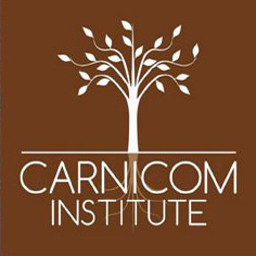Alfred Stites Joins the Institute
Creating “History of the Written Word”
ANNOUNCEMENT
Carnicom Institute is very pleased to announce a collaboration and association with Foliophiles Publishing, LLC., Alfred W. Stites, President, Santa Fe, NM. The project is entitled History of the Written Word. Mr. Stites is working with the cooperation of the Indiana University Lilly Rare Book Library.
This project will be a unique collection of the most important writings since a mark on clay ca. 3400 B.C. to the present century. Such an undertaking has never before been attempted in presenting both a facsimile and explanatory text , and it cannot be duplicated.
There are two simple reasons for such an undertaking: books as we know them are disappearing because most of the volumes in the 640,000 libraries throughout the world were printed on acidic wood-pulp paper since ca. 1840, as most were, will have disintegrated within a few hundred more years.
The second reason is technical: Within this century, and most librarians say within the next decade or two, all books will be printed digitally to be read on a hand-held appliance that can store thousands of books. It really is probable that within a few decades libraries will become “computer reading stations” Most major libraries throughout the world are digitizing their entire collection. The first library without books, Biblio Tech, opened a few months ago in San Antonio, TX.
The result: There will be no other place any can go and see how communication developed-a picture of an Egyptian Demotic writing, a Gutenberg page, the first page of Newton’s theories that changed our thinking, and illustrations of 181 books, the originals – that throughout the ages created our communication and developed our civilization in the fields of education, physics, medicine, religion, literature, psychology, and others. The Collection will first be offered to university and major public libraries throughout the English-speaking world. It will be printed on acid-free paper to last 500 years, and includes 18 major languages, with pictorial images from papyrus hieroglyphs, and illustrations, early woodcuts, and on and on to the present. There is now no other single library or group of libraries that have examples that are in this collection of 181 influential examples of the development of communication.
We are pleased that this project will eventually provide even small rural public school libraries with this Collection, as part of our charitable program.
Carnicom Institute anticipates collaboration with numerous projects and endeavors in the future that support humanitarian and educational causes. Carnicom Institute is proud to announce the initiation of these efforts with Alfred Stites as a consultant to the Institute.




